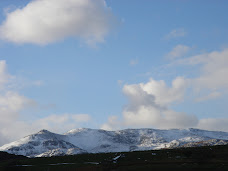The entertaining, excitable, impish little man was an old-style prophet, but also one with a dry sense of humour. White people, he observed, saw him as a politician trying hard to be a bishop, with “horns under my funny bishop’s hat and my tail tucked away under my trailing cape”. His wry assessment of the impact of their arrival in South Africa was: “We had the land and they had the Bible. Then they said, ‘Let us pray,’ and we closed our eyes. When we opened them again, they had the land and we had the Bible.”
At times, Tutu was the despair of his friends. Once he said that if the Russians came to South Africa, they would be welcomed as liberators. An associate sighed, “He had this habit of going over the top.” Tutu’s support of international sanctions against South Africa caused a huge eruption among white people and also in his own church. Some liberal white South Africans classified Tutu’s Nobel peace prize in 1984 as foreign interference.
Tutu could never execute the politician’s soft-shoe shuffle. He spoke his mind, was always his own man, never trendy or fully in the political mainstream. Initially, he had been drawn to the Black Consciousness Movement and to American ideas of “black theology”, but he shifted closer to the United Democratic Front (UDF), the exiled ANC’s internal surrogate.
















No comments:
Post a Comment